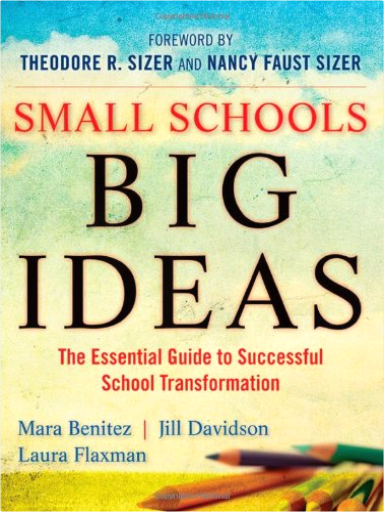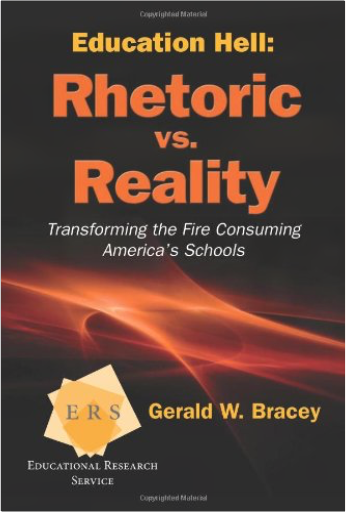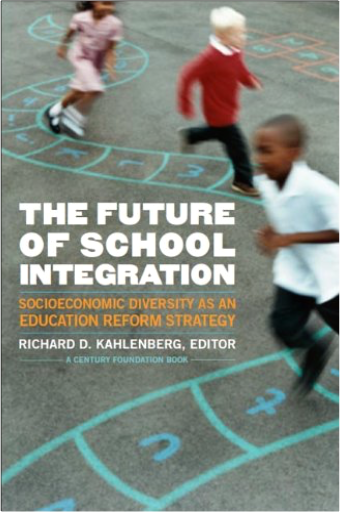
Aristocracy of Everyone
Also available on Amazon
In this brilliant, controversial, and profoundly original book, Benjamin R. Barber fundamentally alters the terms of the current debate over the value of opportunity in American education, politics, and culture. Barber argues that the fashionable rallying cries of cultural literacy and political correctness completely miss the point of what is wrong with our society. While we fret about "the closing of the American mind" we utterly ignore the closing of American schools. While we worry about Japanese technology, we fail to tap the more fundamental ideological resources on which our country was founded. As Barber argues, the future of America lies not in competition but in education. Education in America can and must embrace both democracy and excellence. Barber demonstrates persuasively that our national story has always comprised an intermingling of diverse, contradictory, often subversive voices. Multiculturalism has, from the very start, defined America.

Small Schools, Big Ideas: The Essential Guide to Successful School Transformation
Also available on Amazon
Small Schools, Big Ideas shows how the principle-based and equity-focused model from the Coalition of Essential Schools (CES) can be used to redesign existing schools and create new schools that prepare students for this century's challenges and opportunities. These recommendations and proven strategies can help educators transform their schools to become truly equitable, personalized, and academically challenging.

50 Myths and Lies That Threaten America's Public Schools: The Real Crisis in Education
Also available Amazon
This book is guaranteed to spark lively debates and critical thinking in any classroom! Two of the most respected voices in education identify 50 myths and lies that threaten America's public schools. Berliner and Glass argue that many citizens' conception of K-12 public education in the United States is more myth than reality. Warped opinions about our nation's public schools include: they are inferior to private schools; they are among the worst in the world in math and science; teachers should be fired if their students don't score at the national average, and on and on.

Education Hell: Rhetoric vs. Reality
Also available on Amazon
Are America's schools broken? Education Hell: Rhetoric vs. Reality seeks to address misconceptions about America's schools by taking on the credo 'what can be measured matters.' To the contrary, Dr. Bracey makes a persuasive case that much of what matters cannot be assessed on a multiple choice test. The challenge for educators is to deal effectively with an incomplete accountability system-while creating a broader understanding of successful schools and teachers. School leaders must work to define, maintain, and increase essential skills that may not be measured in today's accountability plans.

Organizing Schools for Improvement: Lessons from Chicago
Also available on Amazon
In 1988, the Chicago public school system decentralized, granting parents and communities significant resources and authority to reform their schools in dramatic ways. To track the effects of this bold experiment, the authors ofOrganizing Schools for Improvement collected a wealth of data on elementary schools in Chicago. Over a seven-year period they identified one hundred elementary schools that had substantially improved—and one hundred that had not. What did the successful schools do to accelerate student learning?

Trust in Schools: A Core Resource for Improvement
Also available on Amazon
Most Americans agree on the necessity of education reform, but there is little consensus about how this goal might be achieved. The rhetoric of standards and vouchers has occupied center stage, polarizing public opinion and affording little room for reflection on the intangible conditions that make for good schools. Trust in Schools engages this debate with a compelling examination of the importance of social relationships in the successful implementation of school reform.

How Smart Schools Get and Keep Community Support
Also available on Amazon
Marketing 101: How Smart Schools Get and Keep Community Support is a compact, practical handbook created to guide educators in the application of marketing strategies that get results. For many years, marketing has been implemented in school settings with a fragmented, piecemeal approach_only to have disappointing and sometimes expensive results. This book will introduce educators to sound marketing principles and action steps. Full of descriptive, concrete examples, the information is easy to adapt to any educational setting as a workhorse to capture and retain community support.

Interest Groups and Education Reform: The Latest Crusade to Restructure the Schools
Also available on Amazon
During the 1980s, the education policy agenda proceeded from a consensus reached by politicians, the business community and educators to restructure the nation's public schools as a way to improve student achievement. This book begins with a critical examination of the impact of interest groups on American education since the inception of the first school system. Two restructuring proposals became extremely popular in the reform debate but stemmed from different premises about the best way to restructure the schools.

Keeping the Promise?: The Debate over Charter Schools
Also available on Amazon
Keeping the Promise? examines one of the most complex reforms in education: charter schools. This wide-ranging and thought-provoking collection of essays examines the charter school movement s founding visions, on-the-ground realities, and untapped potential within the context of an unswerving commitment to democratic, equitable public schools. Essays include policy overviews from nationally known educators such as Ted Sizer and Linda Darling-Hammond, interviews with leaders of community-based charter schools, and analyses of how charters have developed in cities such as New Orleans and Washington, D.C.

The Schools We Need: Creating Small High Schools that Work for Us
Also available on Amazon
The Schools We Need offers a powerful, compelling, and unassailable argument for reforming America's schooling methods and ideas--by one of America's most important educators, and author of the bestselling Cultural Literacy. Renowned educator and author E. D. Hirsch, Jr., argues that, by disdaining content-based curricula while favoring abstract--and discredited--theories of how a child learns, the ideas uniformly taught by our schools have done terrible harm to America's students. Instead of preparing our children for the highly competitive, information-based economy in which we now live, our schools' practices have severely curtailed their ability, and desire, to learn.

The New Meaning of Educational Change
Also available on Amazon
When Michael Fullan published the first edition of this seminal work in 1982, he revolutionized the theory and practice of education reform. Now, a quarter of a century later, his new fourth edition promises to be equally influential for radical reform in the 21st century. Capturing the dilemmas and leading ideas for successful large-scale systemic reform, Fullan bases his text on practical and fundamental work with education systems in several countries. The New Meaning of Educational Change is your definitive compendium to all aspects of the management of educational change-a powerful resource for everyone involved in school reform.

Dumbing Us Down: The Hidden Curriculum of Compulsory Schooling
Also available on Amazon
Strong words from the New York State Teacher of the Year! Twenty-six years of award-winning teaching have led John Gatto to the sad conclusion that compulsory governmental school does little but teach young people to follow orders. Dumbing Us Down offers a radical critique of public schooling, and suggests a guerilla curriculum of daily involvement in our communities.

Educating for Insurgency: The Roles of Young People in Schools of Poverty
Also available on Amazon
A manifesto for today’s broken schools. Desegregation has failed. Schools filled with black and brown students have become plantations of social control, where the policing of behavior trumps the expanding of minds. Radical teachers and organizers in American public schools must help young people fashion an insurgency. That means, at the very least, seeing each student’s rebellion not as violation, but as communication. Jay Gillen writes with passion and compassion about the daily lives of poor students trapped in institutions that dismiss and degrade them. Jay Gillen teaches English in a Baltimore public school and has worked with the Baltimore Algebra Project since 1995, building math literacy among youth of color and youth experiencing poverty in US public schools. Bob Moses is an educator and Civil Rights activist. He founded the Algebra Project in 1982.

Education and the Crisis of Public Values: Challenging the Assault on Teachers, Students, & Public Education
Also available on Amazon
Education and the Crisis of Public Values examines American society’s shift away from democratic public values, the ensuing move toward a market-driven mode of education, and the last decade’s growing social disinvestment in youth. The book discusses the number of ways that the ideal of public education as a democratic public sphere has been under siege, including full-fledged attacks by corporate interests on public school teachers, schools of education, and teacher unions. It also reveals how a business culture cloaked in the guise of generosity and reform has supported a charter school movement that aims to dismantle public schools in favor of a corporate-friendly privatized system.

The Quality School Teacher: Specific Suggestions for Teachers Who Are Trying to Implement the Lead-Management Ideas of the Quality School in Their C
Also available on Amazon
The author of The Quality School shows teachers how to set up the most effective classroom environment for their students, presenting explicit, practical examples for encouraging an atmosphere in which students will want to learn.

The Quality School: Managing Students Without Coercion
Also available on Amazon
Following on Dr. Demming's principle that "Quality is Job #1," Glasser lays out a practical approach to revitalizing education in the same way that Demming revitalize the Japanese auto industry in post-WWII. By eliminating coersion, and stimulating pride in one's workmanship by emphasizing quality at every level, from student up to superintendent, it is possible improve the quality of education for all students. It is a humane approach to dealing with problems that plague our schools today: apathy, rebelliousness, low skill and so forth. Glasser boldly demands of us to abandon failing boss tactics that riddle our school for something that will bring the best in everyone.

Trying Times: How A Teacher Strike Began and Ended
Also available on Amazon
TRYING TIMES is all about what happens when Raratan School District administration and Raratan school teachers can't reach final agreement on their labor contract renewal. Both sides clam up and tell parents and public almost nothing once the teacher strike begins. In TRYING TIMES our author takes us into the negotiation room and into the caucus rooms where we see both parties and the state-appointed mediator confront and ultimately solve their disputed issues. In between meetings we are given a close look at how the strike impacts the daily lives of all the citizenry of the community, including teachers, parents, school administrators, school board members, cafeteria workers, postal and trades personnel, law enforcement personnel, judges, and the football and other sports teams. This is a one-of-a-kind book. Don't miss it!

Going Public: Priorities & Practice at the Manhattan New School
Also available on Amazon
Going Public is a resource that you'll refer to again and again. "Reader's Guides" highlight the priorities and practices contained in every chapter. There are also bulleted lists of important ideas and suggestions, actual letters on a wide range of topics, and illustrative student work. The appendix alone contains dozens of useful and easily reproduced artifacts, including staff meeting conversation starters, interview questions for prospective teachers, and bibliographies of books for children and adults. Teachers, administrators, parents, and staff developers will find Going Public an invaluable guide to creating a school committed to the very best public education has to offer.

Choosing Equality: The Case for Democratic Schooling
Also available on Amazon
Winner of the 1988 Eli M. Oboler Memorial Award, American Library AssociationWinner of the 1987 Outstanding Books in Educational Studies, American Educational AssociationThe product of a two-year project developed by the New World Foundation, these essays present a comprehensive critique of education and the current reforms covering instruction and the institution as well as policy and politics.

The Accelerated Schools
Also available on Amazon
"Hopfenberg and Levin provide a pwerful resource for creating schools grounded in community reflecton, inquiry, and the belief that all children can be smart. . .Here at last is a ?how-to' book on school reform that helps educators confront the values, beleifs, and politics, as well as the practices, that make changing schools so difficult."— Jeannie Oaks, professor of education, UCLA.
This resource is the first comprehensive guide to the innovative practices of accelerated schools. It summarizes the lessons learned by the project staff and the family of over 300 accelerated schools working together during a seven-year period. It is designed to be used by a wide variety of participants for training, discussion, and guidance in the move to transform schools nationwide.

Class Action: An Activist Teacher's Handbook

The Future of School Integration: Socioeconomic Diversity as an Education Reform Strategy
Also available on Amazon
Almost fifty years ago the Coleman Report, widely regarded as the most important educational study of the twentieth century, found that the most powerful predictor of academic achievement is the socioeconomic status of a child's family. The second most important predictor is the socioeconomic status of the classmates in his or her school. Until very recently, the importance of this second finding has been consciously ignored by policymakers, and the national education debate has centered on trying to "fix" high-poverty schools by pouring greater resources into them, paying educators more to teach in them, or turning them into charter schools. At the local level, however, eighty school districts educating four million students now consciously seek to integrate schools by socioeconomic status.

Reconstructing American Education
Also available on Amazon
One of the leading historians of education in the United States here develops a powerful interpretation of the uses of history in educational reform and of the relations among democracy, education, and the capitalist state. Michael Katz discusses the reshaping of American education from three perspectives. First is the perspective of history: How did American education take shape? The second is that of reform: What can a historian say about recent criticisms and proposals for improvement? The third is that of historiography: What drives the politics of educational history? Katz shows how the reconstruction of America’s educational past can be used as a framework for thinking about current reform.

Small Schools: Public School Reform Meets the Ownership Society
Also available on Amazon
When education activists in New York, Chicago, and other urban school districts in the 1980s began the small-schools movement, they envisioned a new kind of public school system that was fair and equitable and that encouraged new relationships between teachers and students. When that movement for school reform ran head-on into the neo-conservative takeover of the Department of Education and its No Child Left Behind strategy for school change, a new model of federal power bent on the erosion of public space and the privatization of public schooling emerged. Michael and Susan Klonsky, educators who were among the early leaders of the small-schools movement, tell the story of how a once-promising model of creating new small and charter schools has been used by the neocons to reproduce many of the old inequities. Small Schools is the engaging story of what happens when the small-schools movement meets the Ownership Society.

Small Schools: The Numbers Tell a Story; A Review of the Research and Current Experiences
A compelling body of research shows that when students are part of smaller and more intimate learning communities, they are more successful. The latest research demonstrates that small schools, particularly schools of choice, have a measurably positive impact on inner-city students, especially those from minority and low-income families. The tradeoff for the wider selection of courses offered in large schools has been the sacrifice of coherence, intimacy, security, student choice, and teacher autonomy that a small school can offer. In small schools, the level of participation in all activities tends to be higher, and fewer students are marginalized.

Savage Inequalities: Children in America's Schools
Also available on Amazon
For two years, beginning in 1988, Jonathan Kozol visited schools in neighborhoods across the country, from Illinois to Washington D.C., and from New York to San Antonio. He spoke with teachers, principals, superintendents, and, most important, children. What he found was devastating. Not only were schools for rich and poor blatantly unequal, the gulf between the two extremes was widening-and it has widened since. The urban schools he visited were overcrowded and understaffed, and lacked the basic elements of learning-including books and, all too often, classrooms for the students. In Savage Inequalities, Kozol delivers a searing examination of the extremes of wealth and poverty and calls into question the reality of equal opportunity in our nation's schools.

Waging Peace in Our Schools
Also available on Amazon
Drawing on the latest research into emotional and social learning, this practical guide, filled with stories, voices, ideas, and advice, explains ways in which we can educate children's hearts as well as their minds, as well as techniques to create "peaceable classrooms" where children receive a diverse education free of conflict.

Rethinking Schools: An Agenda for Change
Also available on Amazon
Rethinking Schools includes sections on rethinking language arts and social studies curricula, testing and tracking, national education policy, antibias and multicultural education, and building school communities. These articles are practical essays by classroom teachers as well as educators such as Henry Louis Gates Jr., Bill Bigelow, Lisa D. Delpit, and Howard Zinn. Resource lists of relevant books, videos, organizations, and materials on each topic make this a powerful tool for implementing successful school reform.

Class Dismissed: Why We Cannot Teach or Learn Our Way Out of Inequality
Also available on Amazon
In Class Dismissed, John Marsh debunks a myth cherished by journalists, politicians, and economists: that growing poverty and inequality in the United States can be solved through education. Using sophisticated analysis combined with personal experience in the classroom, Marsh not only shows that education has little impact on poverty and inequality, but that our mistaken beliefs actively shape the way we structure our schools and what we teach in them. Rather than focus attention on the hierarchy of jobs and power—where most jobs require relatively little education, and the poor enjoy very little political power—money is funneled into educational endeavors that ultimately do nothing to challenge established social structures, and in fact reinforce them. And when educational programs prove ineffective at reducing inequality, the ones whom these programs were intended to help end up blaming themselves. Marsh’s struggle to grasp the connection between education, poverty, and inequality is both powerful and poignant.

An Activist Handbook for the Education Revolution: United Opt Out's Test of Courage
Also available on Amazon
This book is intended for educators, parents and community activists interested in reclaiming our public schools and reclaiming the public narrative around education policy. The book infuses research about the recent history of education policy reform, the strategies United Opt Out uses for fighting back against these policies, and proposes solutions that work to create sustainable, equitable, anti-racist, democratic and meaningful public education. This book is for anyone interested in an "insider's look" behind the scene of forming an organization, or leading a resistance. Simultaneously the book provides scholarly-based research about the broader issues, policies and data around education reform, and the opt out movement. Education policy has been heating up ever since NCLB but especially since the roll out of Race to The Top and the Common Core State Standards.






























